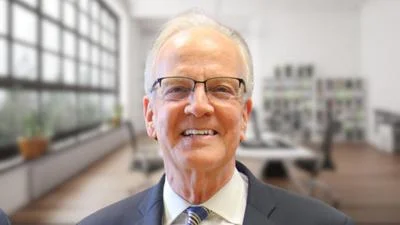In an increasingly global economy, great American cities like Pittsburgh have a choice: Step up and compete, or retreat from the international marketplace. For 250 years, Pittsburgh has stepped up to the plate and competed, and America is better off for it. But in spite of our advantages, America's global leadership is not guaranteed.
If history is any guide, the people of Pittsburgh know that we must be prepared to change and to innovate if we want to prosper. If we don't act decisively to increase our commitment to innovation, our long-term competitiveness will be diminished. Today I am in Pittsburgh to discuss how we can encourage the energy innovation that will be critical to our nation's growth. It is natural to come to Pittsburgh, a place with a rich history of innovation. Today dynamic organizations from around the region are building on that legacy: at universities like Carnegie Mellon; within companies like Westinghouse; and at hundreds of smart, agile companies that are the future of Pittsburgh's economy. In fact, leaders from many of these organizations are joining me today as we seek strategies that will drive our economy in the future.
Our nation now faces a particularly serious challenge in the energy sector. Energy prices are the top pocketbook issue for the American people—and our reliance on foreign oil is one of our most pressing national security concerns. Unfortunately, at a time when we need urgent action from Congress, we are seeing far too little to meet the challenges we face. While the president has proposed policies that combine increased conservation, investment in new technologies and more production of existing energy sources, Congress has effectively done little to close the energy gap. This hurts the American people, undermines growth and signals the markets that we aren't serious about expanding our energy supplies.
There is no doubt innovation can lead us to a future of low-carbon energy and that alternative energy resources will be part of that mix. At the same time, the reality is that hydro-carbons—in particular, oil and natural gas—will continue to be an essential part of a mix that will power our economic growth for the immediate future. This means we must invest in the basic research that will spur our economic growth and increase energy security. In 2006, the president announced an initiative to double the federal government's basic research budget in 10 years. This research, some of which is conducted by the Department of Commerce's National Institute of Standards and Technology (NIST), includes work on key alternative energy technologies that hold the promise of meeting tomorrow's energy demands.
For example, fuel cell and fuel storage systems will increase battery safety and capacity that will be important to advances in products such as electric cars. Other research, including energy delivery grid controls and standards will keep the superstructure that supports the American economy secure and robust. In spite of the critical need for these initiatives, Congress has failed to fully fund this cutting-edge research. NIST, for example, received just over half the funding requested for this year and last, putting innovative programs in jeopardy. As the price of oil rises, we need to tap all American energy resources that we can in an environmentally responsible manner. This includes exploring innovative technologies so we can better tap into domestic energy resources. There are tens of billions of barrels of oil trapped in oil shale and significant oil and gas resources on the Outer Continental Shelf and in northern Alaska. We also need to increase our refining capacity and encourage new investments in nuclear and clean coal technologies, both areas where this region has tremendous assets, resources and capabilities.
The president has lifted the executive ban on accessing energy resources in the Outer Continental Shelf. Democratic leaders in Congress now need to remove the congressional prohibition on energy exploration in these areas.
The president has proposed short-term and long-term plans to address the energy needs of our growing economy. Congress urgently needs to step up and fulfill its obligation to our nation's future growth and provide leadership by making these proposals a reality.
How we respond to these challenges is up to us. The future of our nation's competitiveness depends on the actions we take today. Americans are up to the challenge. We've led the way before and we've achieved what others have not even dared to dream. Now we must act to find the energy our growing economy needs and foster the innovation that will help America thrive.
Source: U.S. Department of Commerce








